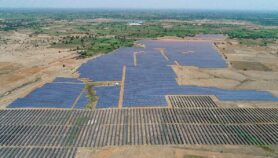Send to a friend
The details you provide on this page will not be used to send unsolicited email, and will not be sold to a 3rd party. See privacy policy.
[HANOI] Vietnamese progress in science and technology is lagging and heavy investment in both fields is urgently needed to ensure the country’s economic growth and competitiveness, says a report released last week by the Vietnamese National Assembly.
The report highlights challenges in the fields of biotechnology, automation technology and materials science. It says Vietnam lacks a viable biotechnology industry based on research leading to commercial applications, and that the country needs to launch a nanotechnology programme by starting work immediately on the relevant research and development.
“Nanotechnology should be part of a general strategy for developing materials science,” said Ho Duc Viet, head of the National Assembly’s Committee for Science, Technology and Environment, adding that specific steps such as training and improving technical infrastructure and facilities are needed.
The report says that some economically important industries need more input from research. The growing steel industry, for instance, primarily produces steel for the construction industry. According to the report, steel plants have yet to produce tool-grade steel, despite the fact that the country is rich in the necessary raw materials.
The report also reveals that several government ministries and departments still find the application of information technology (IT) complicated and confusing, and that local IT businesses were wastefully making big investments in developing hardware but not in software.
Viet said that although the country had made considerable progress — for instance, increasing the number of Internet users from 1.9 million in June 2003 to 5.4 million in September 2004 – this has taken place at a slower pace than in many other countries.
To help address the situation, Vietnam is developing ‘high-technology zones’ in which hi-tech business growth is encouraged by tax breaks and other benefits. Currently, two such zones are being created in Vietnam – one in Ha Tay province near Hanoi and one in Ho Chi Minh City.













